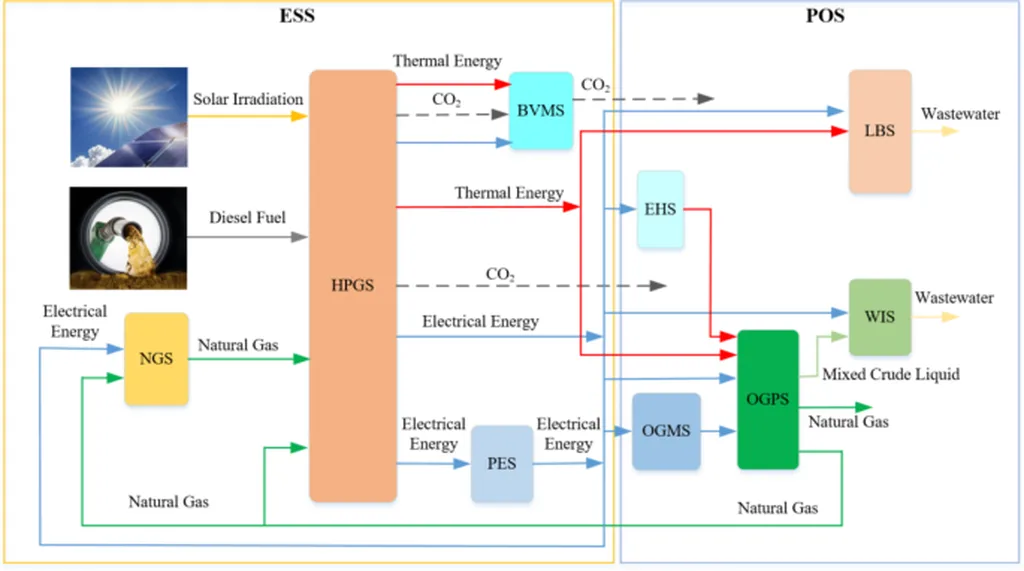In the rapidly evolving energy landscape, integrating renewable sources, electric vehicles, and advanced storage technologies presents both opportunities and challenges. A recent study published in the *Journal of International Transactions on Electrical Energy Systems* offers a promising approach to optimize these integrated energy systems, enhancing both efficiency and profitability. Led by Vahid Khademi from the Department of Electrical Engineering, the research introduces an enhanced particle swarm optimization (I-PSO) algorithm to tackle the complexities of modern energy management.
The study focuses on the growing significance of Power-to-Gas (P2G) technology, which converts excess electricity from renewable sources or battery storage into gas. This gas can then be distributed through existing gas networks, creating a crucial link between electricity and gas grids. “The interaction between these grids is becoming increasingly important as we strive to maximize energy efficiency and economic benefits,” Khademi explains. By integrating P2G technology with distributed generation units, the research aims to optimize the overall energy system.
One of the key challenges in energy management is the uncertainty surrounding renewable energy output and fluctuating electricity prices. To address this, the study employs a scenario-based model that accounts for these variables. Additionally, demand-side management (DSM) plays a vital role in reducing electricity demand peaks and increasing profits. The research presents a hybrid model based on mixed-integer nonlinear programming (MINLP) to optimize both electric and gas systems simultaneously. This comprehensive approach includes components such as distributed generation (DG), P2G, energy storage technologies (EST), electric vehicles (EVs), and DSM.
The enhanced particle swarm optimization (I-PSO) algorithm developed by Khademi and his team offers a significant improvement in solving nonlinear optimization problems. “Our algorithm improves optimization performance by about 3.4% compared to other methods,” Khademi notes. This enhancement is crucial for handling the complexities of integrated energy systems and ensuring optimal performance.
The proposed model was tested using a 33-bus distribution system, and the results from various scenarios highlight its effectiveness. The study demonstrates that the I-PSO algorithm can significantly improve the optimization of integrated energy systems, paving the way for more efficient and profitable energy management strategies.
The implications of this research are far-reaching for the energy sector. As renewable energy sources continue to gain traction, the ability to integrate and optimize these systems will be crucial for meeting global energy demands sustainably. The enhanced I-PSO algorithm offers a powerful tool for energy managers and grid operators, enabling them to navigate the complexities of modern energy systems with greater precision and efficiency.
Khademi’s work not only advances the field of energy management but also underscores the importance of interdisciplinary collaboration. By combining expertise from electrical engineering, computer science, and economics, the research provides a holistic approach to solving some of the most pressing challenges in the energy sector.
As the world moves towards a more sustainable energy future, innovations like the I-PSO algorithm will play a pivotal role in shaping the energy landscape. The research published in the *Journal of International Transactions on Electrical Energy Systems* offers a glimpse into the potential of integrated energy systems and the transformative impact they can have on the global energy market.

